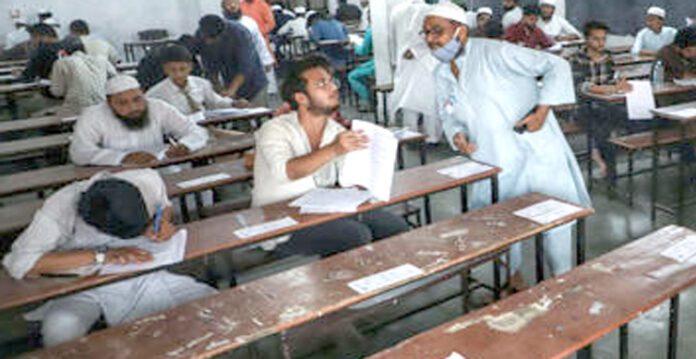Jamiat Ulama-e-Hind has strongly opposed the recent directive issued by the Uttar Pradesh (UP) government, which mandates the transfer of students from unrecognised madrasas and non-Muslim students from government-aided madrasas to government schools. Describing the directive as unconstitutional and a violation of minority rights, the Muslim organisation has demanded its immediate withdrawal.
Maulana Mahmood Asad Madni, the president of Jamiat Ulama-e-Hind, criticized the directive in a statement on Thursday, stating that it infringes upon the unique legal status of madrasas under section 1(5) of the Right to Free and Compulsory Education Act, 2009. He emphasized that madrasas, including Islamic ones, are exempted under this provision and argued that the government’s action contradicts this exemption.
The controversy arose from an order issued on June 26 by the then UP chief secretary, Durga Shankar Mishra, following a letter from the National Commission for Protection of Child Rights (NCPCR) dated June 7. The NCPCR’s directive required non-Muslim students in government-funded madrasas to be admitted to schools under the Basic Education Council for formal education. It also mandated the transfer of students from unrecognised madrasas to council schools, with district-level committees tasked to oversee this process.
Also Read: Yogi Govt to Probe All Properties Registered Under Waqf
Maulana Mahmood Madni further stated that the NCPCR lacks the authority to dictate such segregation based on religion, calling it divisive and against the principles of inclusivity in education. He disclosed that he has written to various UP authorities, including the Chief Secretary, the NCPCR, and officials in the Minority Welfare department, urging them to halt the implementation of what he termed an unconstitutional action.
The directive has the potential to impact approximately 25,000 madrasas across Uttar Pradesh, including well-known institutions like Darul Uloom Deoband and Nadwatul Ulama. Of these, 16,000 are government-recognised, and 560 receive government aid. Maulana Madni expressed concern over the disruption this could cause to thousands of independent madrasas and their students.
In response, Iftikhar Ahmed Javed, president of the UP Madrasa Education Council, voiced apprehensions about the directive’s implications. He highlighted that parents voluntarily choose to enrol their children in madrasas, questioning the rationale behind forcibly transferring students from unaided madrasas to council schools. According to Javed, around 8,500 unaided madrasas in the state cater to approximately seven lakh students who are now slated for relocation under the government order.
The matter remains contentious following the Supreme Court’s stay on an Allahabad High Court order that deemed the Uttar Pradesh Board of Madrasa Education Act, 2004, unconstitutional. The Supreme Court’s intervention came amidst appeals against the High Court’s ruling, underscoring the significant educational implications for nearly 17 lakh students enrolled in madrasas across the state.
(This story is sourced from a third-party syndicated feed. Raavi Media takes no responsibility or liability of any nature. Raavi Media management/ythisnews.com can alter or delete the content without notice for any reason.)


